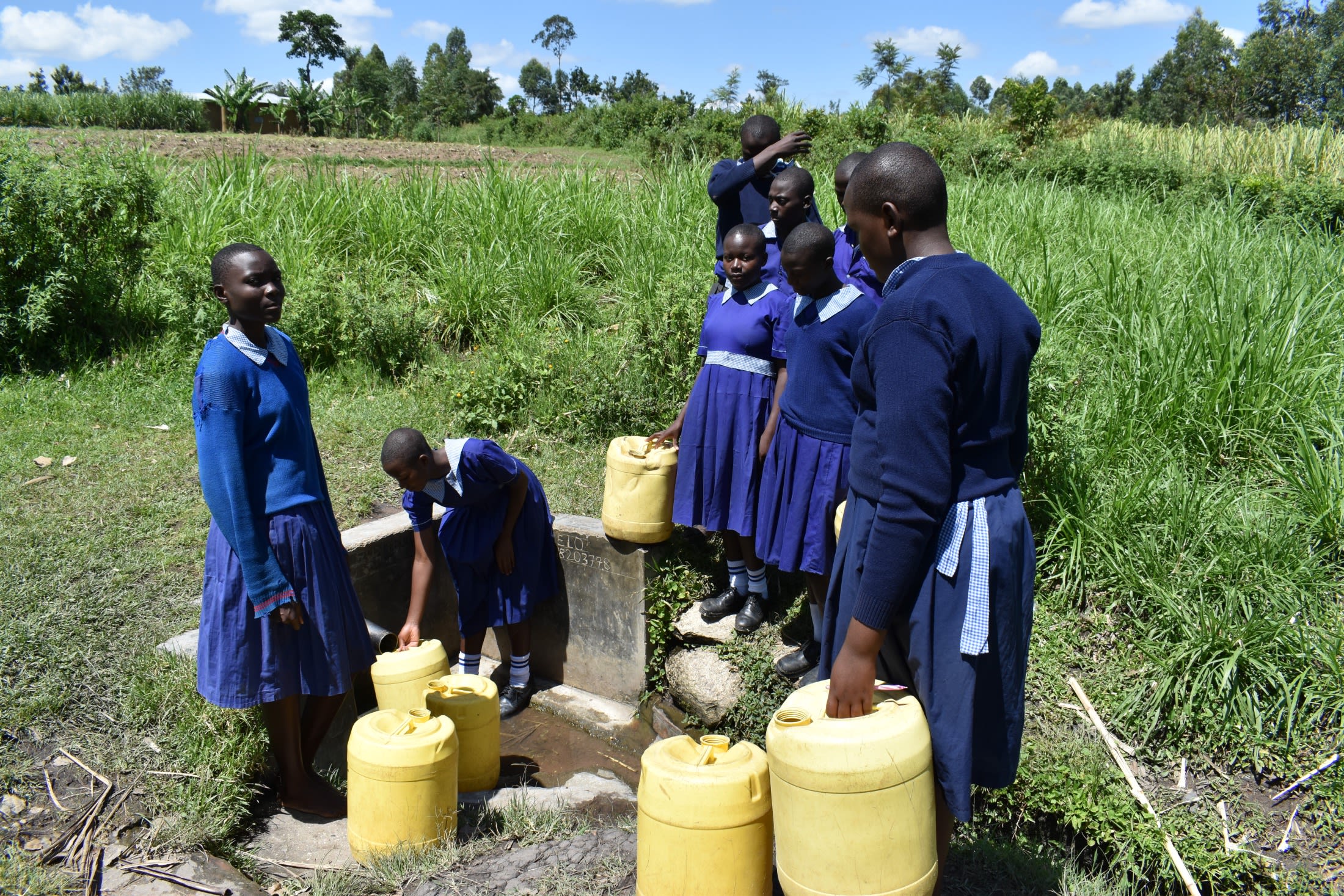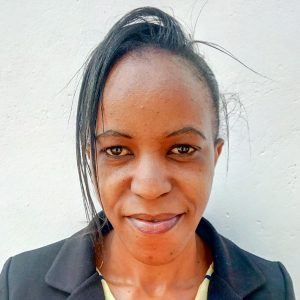The 1082 students and staff at Namanja Primary School face a water crisis every single day. The school currently relies on rainwater collected in a tiny plastic tank which cannot serve the school's needs for drinking water, let alone cooking and cleaning. There is nowhere near enough to go around, especially during the dry season.

Students are required to bring water from home from various unprotected sources, including surface runoff, but it is still not enough to meet the demands of the large school population. Therefore, teachers send pupils to collect water during the school day from a local spring, losing valuable learning time. At times, teachers need to accompany the students, meaning the whole classroom suffers.

The spring is not a reliable water source because it is quite a distance from the school, and it is contaminated from nearby farms and rubbish collecting around the drainage area. Most pupils have complained of stomachaches and diarrhea after using water from home or collected from the spring.

Simon W., a 17-year-old student at the school, commented, "[I] am forced to carry my heavy bag of books and a container of water every morning. By [the] time I reach school [I] am very tired and being attentive during the first lesson is a challenge."
There is also a need for hygiene and sanitation training at the school, enabling students and staff to make decisions that will support a healthy environment in the future, as evidenced by what teacher Solome Mukhauyi shared. "Two years ago, there was a pupil who urinated in the water container, from that time I carry my own water from home and I don't eat food prepared at school. I will be very happy if The Water Project will help us have water within our school compound."
What We Can Do:
New Well
We conducted a hydrogeological survey at this school and the results indicated the water table beneath it is an ideal candidate for a borehole well. Due to a borehole well's unique ability to tap into a safe, year-round water column, it will be poised to serve all of the water needs for this school's large population, even through the dry months.
The school will help collect the needed construction materials such as sand, rocks, and water for mixing cement. They will also provide housing and meals for the work team, in addition to providing local laborers. We will complement their materials by providing an expert team of artisans and drilling professionals, tools, hardware, and the hand-pump. Once finished, water from the well will then be used by the school's students and staff for drinking, handwashing, cooking, cleaning, and much more.
Handwashing Stations
There is currently nowhere for students to wash their hands after using the latrines or before eating lunch, let alone the water to do so.
The student health club will oversee the two new handwashing stations we will provide, and make sure they are kept clean and in working condition. The club leaders will fill the handwashing stations with water daily and make sure they are always supplied with a cleaning agent such as soap or ash.
VIP Latrines
We will construct two triple-door latrine blocks using local materials that the school will help gather. Three doors will serve the girls and three doors will serve the boys. All of these new latrines will have cement floors that are designed to be easy to use and to clean. And with a borehole right on school property, there should be enough water to keep them clean.
Training on Health, Hygiene, COVID-19, and More
We will hold a one-day intensive training session with students, teachers, and parents. This training will cover a wide range of topics including COVID-19 symptoms, transmission routes, and prevention; personal and environmental hygiene; and the operation and maintenance of the borehole, latrines, and handwashing stations. There will be a special emphasis on handwashing.
Our team of facilitators will use a variety of methods to train, including participatory hygiene and sanitation transformation, and asset-based community development. We will initiate a student health club, which will prepare students to lead other pupils into healthy habits at school and at home. We will also lead lectures, group discussions, and provide illustrative handouts to teach health topics and ways to promote good hygiene practices within the school including handwashing and water treatment. We will then conduct a series of follow-up trainings before transitioning to our regularly scheduled support visits throughout the year.
We and the school strongly believe that all of these components will work together to improve standards at this school, which will help lead to better student academic performance and will help unlock the opportunity for these students to live better, healthier lives.

 Borehole Well and Hand Pump
Borehole Well and Hand Pump
 Rehabilitation Project
Rehabilitation Project


















